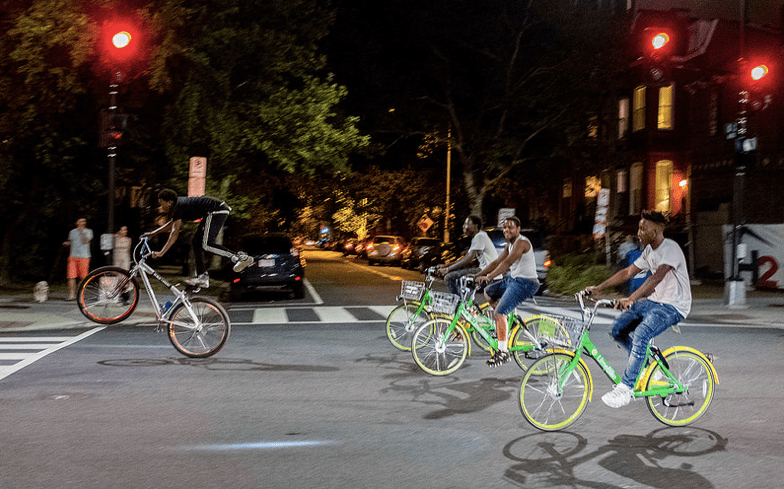The arrival of dockless bike-share is changing the cycling landscape in some American cities. Dallas, for instance, may not be known for its bikeability, but it now has thousands of public bicycles available at very low cost.
With the rapid expansion of these systems have come the inevitable complaints. Some are at least understandable -- sloppily parked bikes can obstruct sidewalks. But Kristen Jeffers at Greater Greater Washington says a lot of the animosity toward dockless bike-share in D.C. is just thinly veiled racism directed at the people riding the bikes:
Dockless bikeshares seem especially popular with teenagers in DC -- as a recent CityLab article pointed out, with black boys in particular. (It’s worth noting that the companies do not collect this type of demographic data about their users.) There’s been a lot of Twitter and comment speculation about whether many of these dockless bikes are stolen -- though there’s no proof of that.
The Twitter and comment grumblings came to a head the other week on a Georgetown listserv, when a disgruntled resident urged neighbors to call the police to report dockless bikeshare users merely for riding down the street.
“Provide a physical description of the rider, color of the bike, direction of travel, and state the assailant suspect is ‘acting suspicious,’” the post read.
Then a Petworth ANC commissioner (ANC 4A02) released a complaint about “unsightly presence in unusual locations,” “criminal elements that result from [the bicycles’] presence and locations,” and hand-wringing over the “ease of movement/escape from watchful eyes and law enforcement” -- a dog whistle if I’ve ever heard one.
More recommended reading today: KUOW says parking policy is one of Seattle's most important tools in the fight against climate change. And the Huffington Post looks at the terrible public health impacts of the highways rammed through a historically black neighborhood in Orlando.






